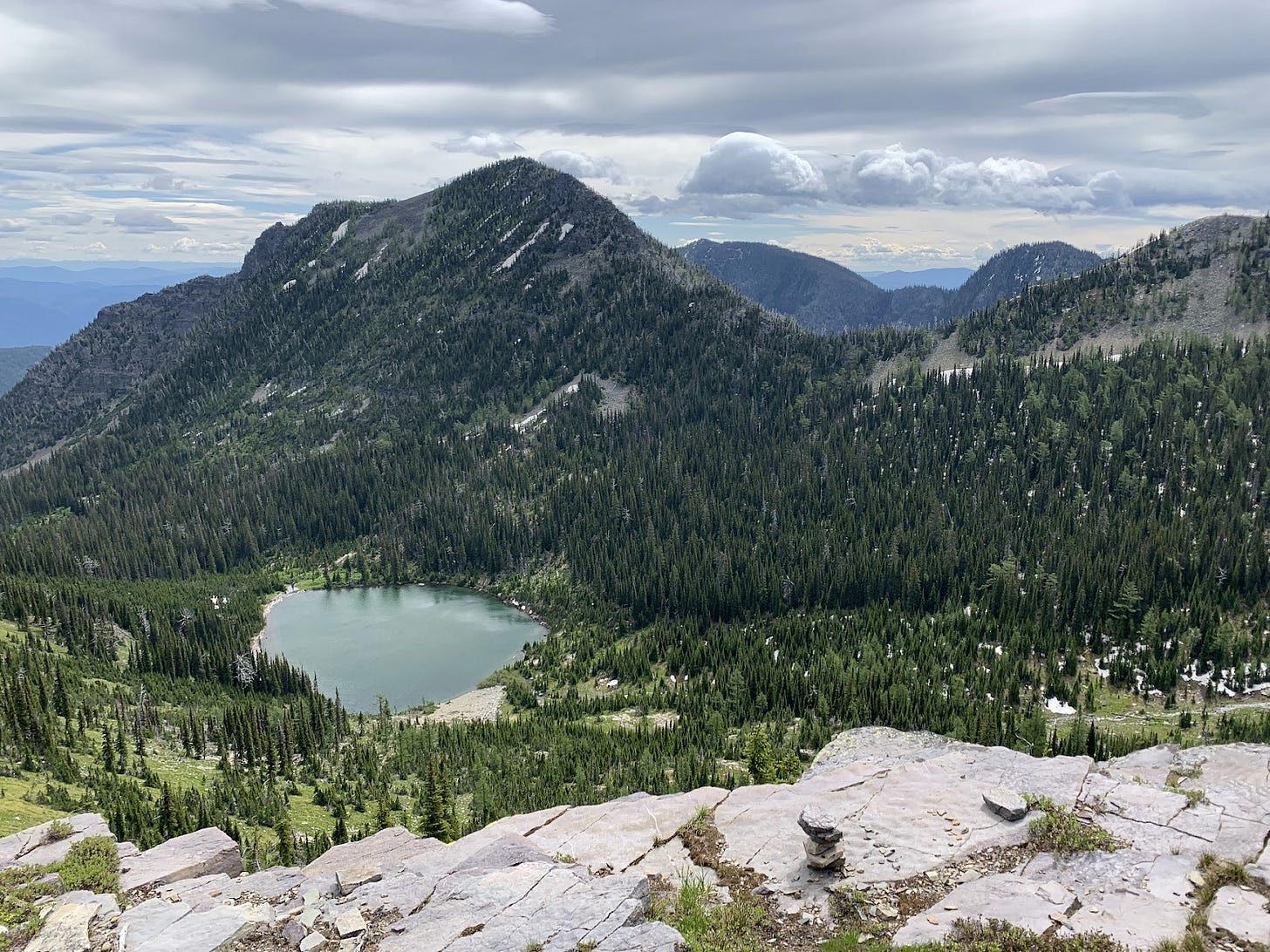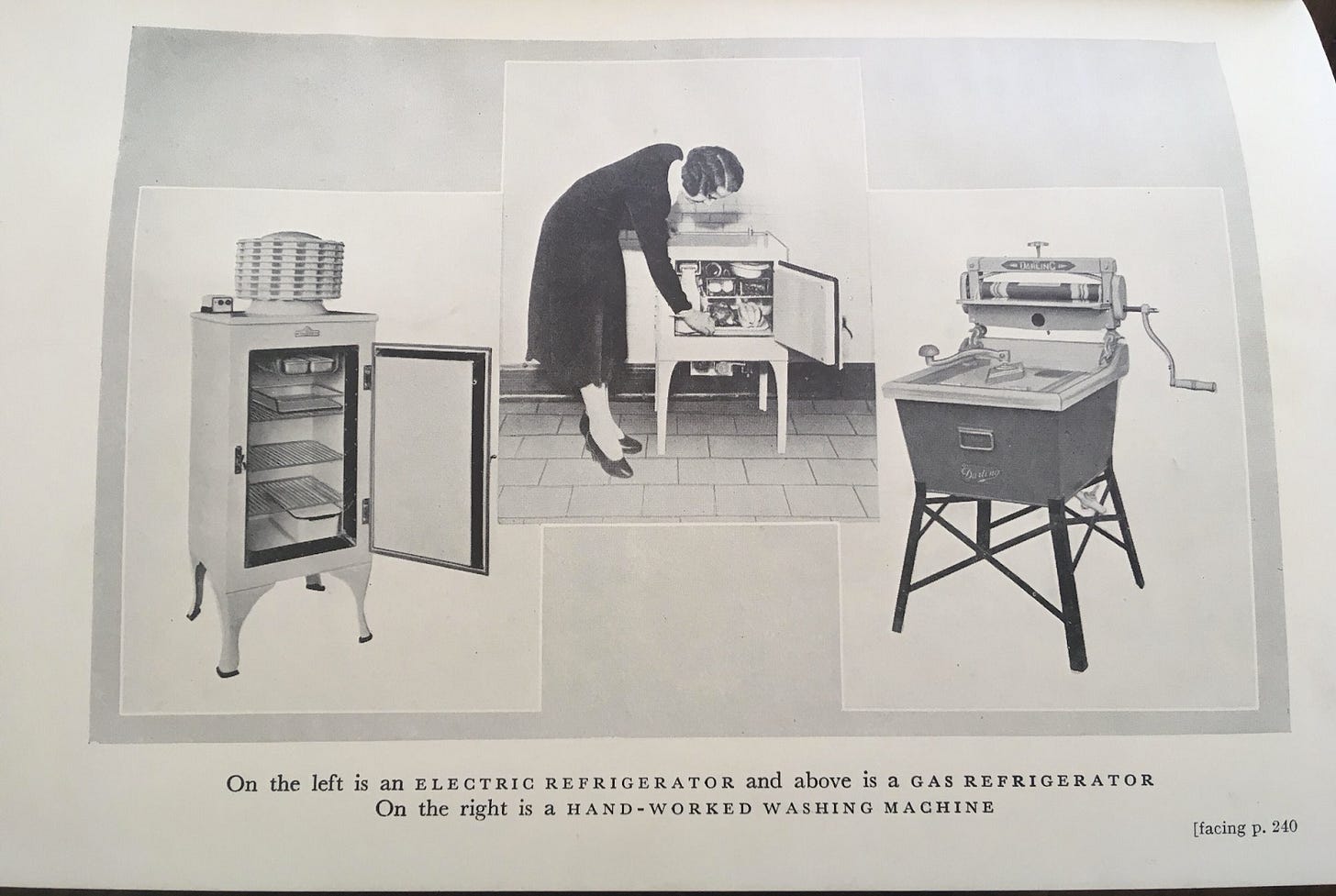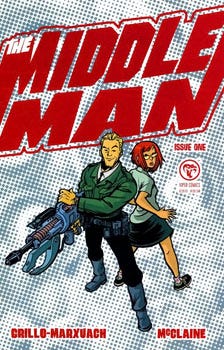The Luddite Case for Web3
How a blockchain internet could free us from technology
(overcoming my existential dread)
Unlike most people working in crypto, I don’t love technology. I don’t love spending time on the computer. I am happiest in nature, far away from social media, bitcoin tickers, and NFTs.
Of course, the internet is here. Yet, as we move forward into a new stage of technological development, an opportunity has arisen to develop an internet that illuminates and expands our relationship to the immediate physical world.
The answer is not, as Outside.io would have you believe, to give you an NFT or digital token every time you go camping. These gamified recreation mechanics only abstract away the essential vitality of touching grass. You can never have “nature on the blockchain.”
Instead, a return to our physical reality in our digital world requires building complex decentralized systems that enable you to choose a certain lifestyle—one that leverages technology to free you from required technological participation. A world in which you are the master of your digital experience, rather than a slave to it.
Live from Anywhere
This doesn’t simply mean work remotely (though remote work will become ever more feasible with a blockchain internet). However, my occupational flexibility does mean that I can work at a blockchain startup without living in a city. Because I can now live anywhere with basic services, I choose to live in Montana, where I do outdoors Montana things. Non-intuitively, working at a tech company has dramatically increased the amount of time I spend interacting with the natural world.
(nature I saw IRL)
Yet, I am still tied to certain institutions that make it impossible for me to go full international hermit. I need banks. I need lawyers (don’t ask). I need a Trezor. To truly “live from anywhere,” one must have access to large institutional systems (unbound by urban environs or nation states) from any internet-connected laptop.
A good friend lives and works guiding treks in the mountains of rural Patagonia while also managing a tourism company in the United States. Here are some challenges he faces: banking access, voting access, access to legal counsel, international regulations, etc.. His complex employment situation requires frequent costly trips to the United States. He is committed to organizing his life and vocation around the natural world, but our traditional institutions are committed to stopping him.
More than just further enabling the nascent class of digital nomad, blockchain technology promises global access to such necessary systems. Truly international banking, secure and standardized medical record storage, online voting—you’ve heard all the promises. But the real promise of this manner of digital organization is the possibility of aligning your physical location with a chosen lifestyle.
My values include spending less time online and more time connecting with IRL friends/family and the natural world. A blockchain future makes living in accordance with my values more possible. And, if physical location becomes primarily a reflection of one’s values (access to arts, access to nature, access to family, access to Milady raves), then one must necessarily confront one’s values honestly and directly.
Technology Should Reduce Friction
Academics have argued the most impactful invention of the 20th century was the washing machine—with newfound freedom, women educated themselves and eventually entered the workforce en masse.1
(Happy Housewife, 1934; p.c.)
Technological advancement has continued to free us from physical obligations. However, technology has also found increasingly banal ways to fill the time it has freed (and allowed corporate interests to take a profit along the way). The attention/data economy of social media is well known, but also of importance are products and services that have interceded in previously straightforward processes and taken a fee for the pleasure.
So, we encounter two related questions:
Which hitherto complex processes can be streamlined by Web3?
What unnecessarily complex “services” in Web2 can be simplified by Web3?
As digital labor replaces physical labor, it is increasingly important to take stock of the shape of that labor. Here, I mean labor in the broad sense—how are you laboring, beyond occupation or vocation? If technology has freed you from growing potatoes to feed your family, but you now spend three hours trying to pay a parking ticket on a county website purposefully designed to infuriate its users, has technology freed you from anything at all?
As someone who spends (too much of) his valuable free time thinking about how to spend his free time valuably, little about blockchain tech is more significant than its impact on workflow and productivity. Once again, I don’t strictly mean this from a corporate perspective, but from a personal perspective. How do you use your time? What does your day actually look like? Are you spending needless time online dealing with bullshit when you could be fishing or playing with your kids or even walking your dog?
Death to Middlemen
(what seems like a bad comic)
Web2 has proliferated a class of rent-seeking middlemen vampires who suck your money and your time. By middlemen, I mean an industry that gorges itself on fees for “services” that largely consist of storing your data/assets or or moving your data/assets between parties. These offenses can be large or small. A $10 “service fee” for buying a ticket online is annoying, but a repeating $50 “processing fee” for sending a rental application to a prospective landlord is criminal.
These products and services offer nothing.2 They provide nothing. They exist for one of two reasons: 1) to extract money from customers with no other options (those who can’t buy concert tickets in person), or 2) to extract money from those with less power by providing conveniences to those with more power.
How does Web3 solve service fee extraction for the Luddite? He is pleased with the simple maxim: less is more. Open source content, applications, and data storage protocols prevent companies from inserting themselves into otherwise simple processes, sucking your money and attention. If one’s goal is to be more present in the physical world, time spent battling (and cursing) exploitative digital middlemen is time wasted. Furthermore, it reinforces the walls our online experience erects to separate us from our immediate reality—the more mental energy we expend wrestling with the inconveniences on our screen, the less energy we have for the world beyond.
Unified Online Experience
Many of my most frustrating online experiences are logistical. I manage multiple log-ins/profiles/communication channels for a wide variety of services (as we speak, I’m engaged in “professional” conversations on Telegram, Twitter, WhatsApp, Discord, email, and Urbit). Maintaining these many channels is a headache. It takes time. It takes energy. It makes me unhappy.
One extremely promising solution is the prospect of a unified blockchain operating system. I am particularly bullish on Urbit/Uqbar (professional disclaimer: Uqbar pays my bills), but regardless, the principle is simple: a unified system means a smoother digital experience, one that enables you to enter and leave at your convenience. It makes your hours in the physical world easier by reducing the time needed to process your experience in the digital world.
This is a simple, but powerful idea: reducing friction online empowers you to live more fully offline. When you aren’t constantly battling against the disorganization inherent in Web2, you don’t have to think about Web2 or plan your life around Web2. Let the internet run itself—run your life instead.3
Things of Internet
As you might imagine, I’m not generally a fan of the Internet of Things (the proliferation of so-called “connected” devices). However, I am interested in the possibility of a related phenomenon: not internet-connected physical objects, but the complete replacement of physical objects by digital versions that more effectively serve their purpose.
An example:
A decade ago I moved to South Korea for work after graduating college. This was a complicated process. I had to notarize my diploma and send it across the world, notarize an FBI background check and send it across the world, complete various verification procedures, sign dozens of documents, et cetera. Paperwork was lost in the mail, notarizations were delayed, and my visa was jeopardized. Even more frustrating, I had to pay a significant fee for every one of these clumsy (and slow) services.
Web3 will streamline such processes until applying for a visa is as simple as ordering from Amazon. NFT documents (such as diplomas or background checks) reduces such official processes to the mere click of a button. Suddenly, sending an official document with verifiable provenance can occur instantly and virtually for free.
This is but a single example of a process that could be streamlined by moving a physical object onto the blockchain. Almost any process involving official documents could be simplified in this manner.
Sure, print out your fancy paper diploma and hang it on the wall. It looks nice there. But there is absolutely no reason a paper diploma should ever be used for anything official ever again. It should be a Thing of the Internet.
Once again, I am a firm believer not everything should be online. “X, but on the blockchain,” is a sure sign to take your money and run. But if a 25% increase in online activity can lead to a 75% decrease in offline bullshit, that is a trade worth making, even for a screen-hater like me.
The Internet on Your Terms
I don’t think I am alone in wanting a better relationship to the digital world. I know that the internet is inescapable, but I believe it is possible to develop a new system that frees us from institutional bondage and corporate complexity, designed to take our money and limit our control over the way we interact online.
What I’m saying is this: if we must be online, let us use the internet in a way that aligns with our values.
By increasing our access to vital institutions and reducing complexity in processes that must be online, the blockchain internet will afford us more flexibility, choice, and time than ever before. More choice means you can use the internet as you see fit.
Remember: you are a customer, not the product. If we must accept technology, it need not be our overlord. A blockchain internet will free us in the simple way that technological development has always enabled a certain type of freedom—with more time, more choice, more flexibility, we will more than ever before be free to determine our relationship to the technology itself.
The question, then, is how you choose to live.4
What is this next big mundane invention unlocking our time? Who knows, but it’s certainly out there and worth finding.
Or worse, they offer something, but that something is letting you interact better with a totally broken system. Read: fintech and SaaS—go check out BMW’s heated seat subscription.
Or, as @basileSportif says: "Make computers able to do computer things so that people can do people things."
Sips beer




